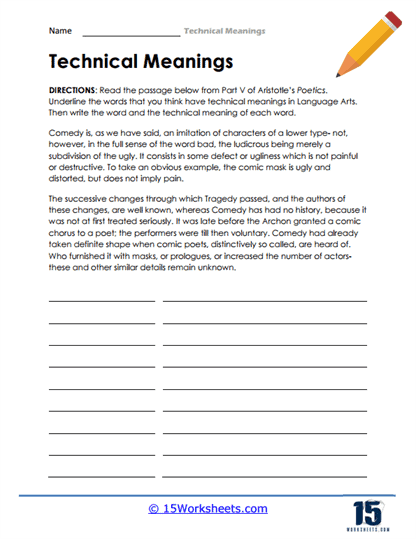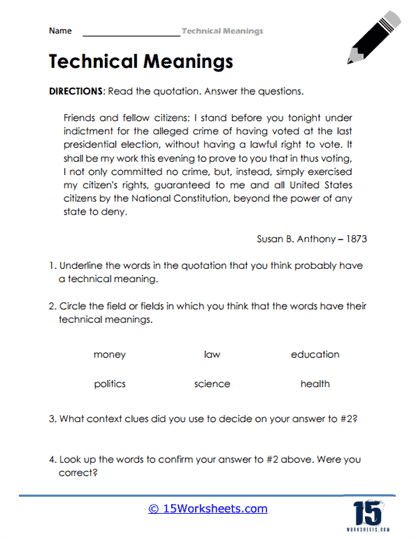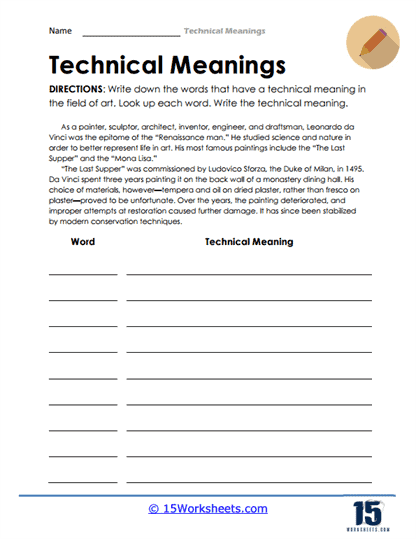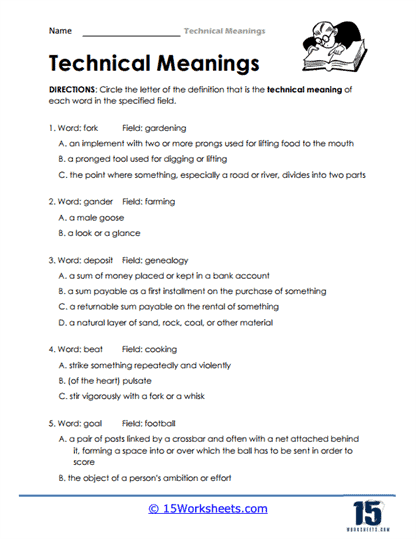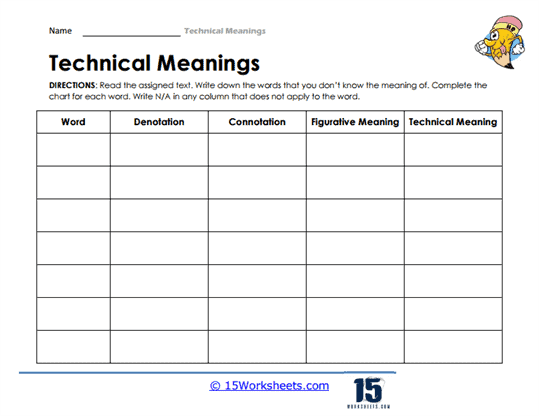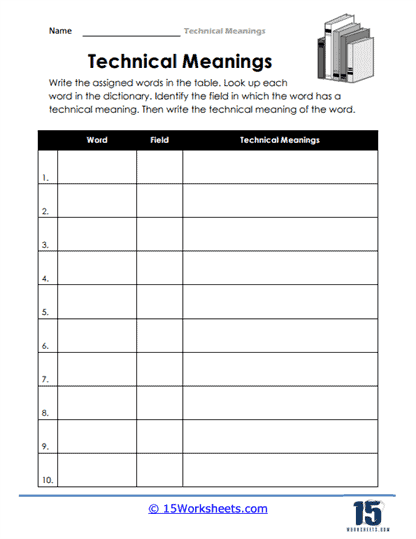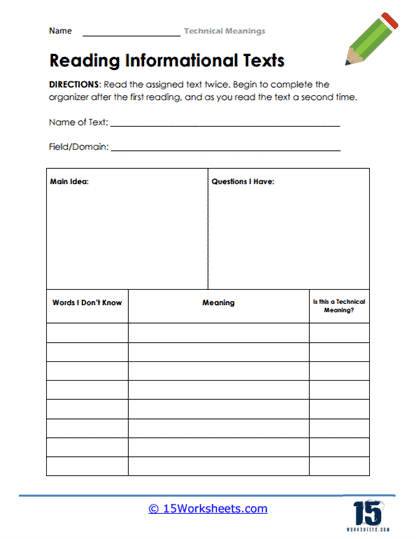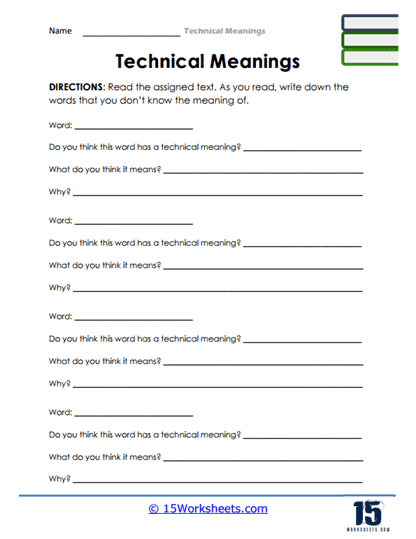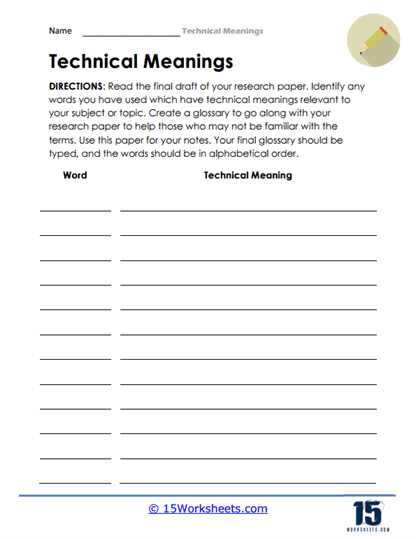Technical Meanings Worksheets
All About These 15 Worksheets
This series of 15 worksheets on technical meanings offers a comprehensive and focused learning experience for students to develop their understanding of specialized vocabulary used in technical fields. Through a variety of activities and exercises, students will enhance their technical vocabulary, improve their comprehension of technical terms, and deepen their understanding of subject-specific language.
The exercises promote critical thinking, domain-specific knowledge, and effective communication in technical contexts. Through these worksheets, students will:
- Identify and define the words that have technical meanings;
- Read assigned passages and show their knowledge on technical meanings by answering writing prompts;
- Be familiar with the definitions of words with technical meanings that are used in various fields;
- And use context clues to decipher the technical meanings of words they are not yet familiar with.
This series of worksheets on technical meanings equips students with the necessary tools to navigate and comprehend specialized vocabulary within technical fields. By focusing on technical term identification, contextual usage, and critical thinking exercises specific to technical subjects, these worksheets enhance students’ technical vocabulary, comprehension skills, and effective communication within specialized domains.
Overall, through these worksheets, students develop a solid foundation in subject-specific language, empowering them to confidently engage with technical materials, contribute to technical discussions, and excel in their academic or professional pursuits.
What Are Technical Meanings of Words?
Technical meanings of words refer to the specific, specialized definitions or interpretations of words within a particular field, industry, or domain. These meanings are often used by experts, professionals, or practitioners in their respective fields and may not be familiar to those outside the field. Technical meanings can differ significantly from the everyday, common usage of a word, making them context-dependent and sometimes challenging to understand for non-experts.
Examples of technical meanings include:
“Virus”
In everyday language, “virus” usually refers to a pathogen causing illnesses like the flu or the common cold. In computer science, however, it refers to a malicious software program designed to replicate itself and infect computer systems, often causing damage or data theft.
“Cell”
In biology, a “cell” is the basic structural, functional, and biological unit of all living organisms. In the context of mobile communication, a “cell” refers to the geographic area covered by a cellular network, divided into smaller regions, each served by a cell tower.
“Resistance”
In everyday language, “resistance” refers to opposition or defiance against something. In physics, however, “resistance” is a property of materials that measures how they impede the flow of electric current, typically measured in ohms.
Understanding technical meanings is essential for effective communication within specialized fields and for grasping the nuances of specific disciplines. It allows professionals to convey complex ideas and concepts accurately and efficiently. Additionally, being familiar with technical meanings can help non-experts gain a better understanding of specialized topics and contribute to interdisciplinary communication and collaboration.

